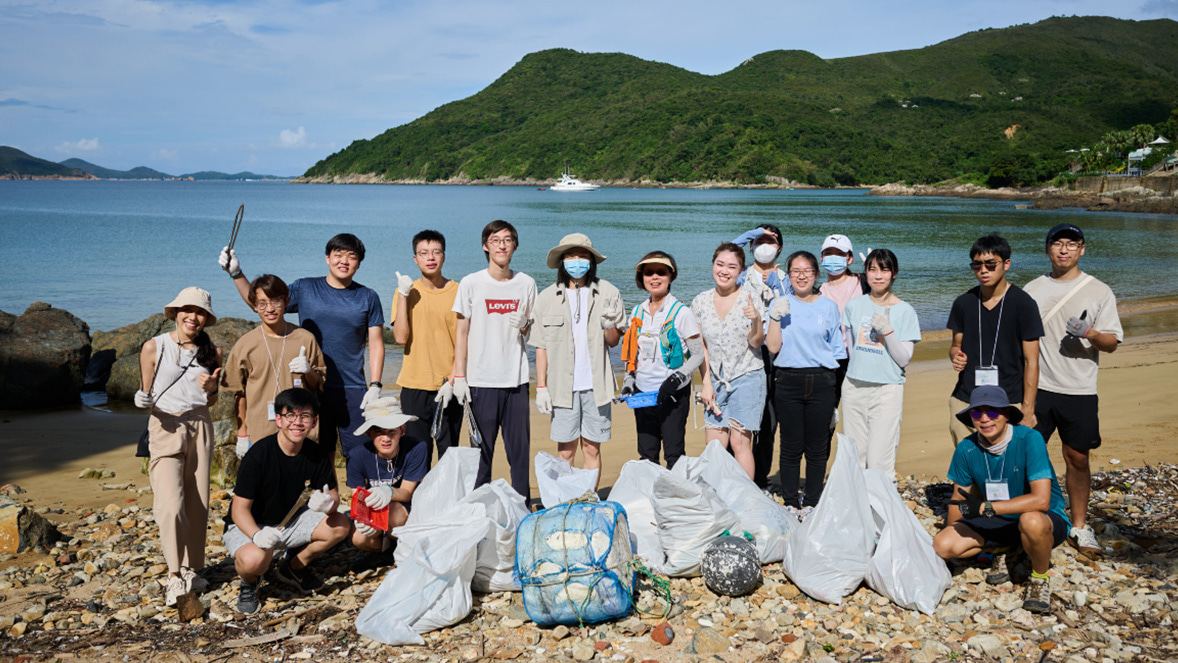
Treasure our planet, reduce waste at source, and promote plastic-free lifestyle – these are all good habits that we should practise into our daily lives. And here is an example how it can be done in real life. A group of Link University Scholarship awardees and retired elders participated in a series of plastic recycling workshops and beach cleaning in June. Jointly organised by Link and the Jane Goodall Institute (Hong Kong), the goal of these activities is to promote intergenerational collaboration for environmental protection.
Benny Ho volunteers his time to organise beach cleaning since retiring from a career in management. During the past few years, he organised more than 500 clean-ups on more than 100 beaches around the city, which amounts to twice a week.
Benny led a team of university students to clean up Sheung Sze Wan Beach in Sai Kung. “Picking up trash in this high temperature is physically exhausting,” he said. “There have been more young people coming to help in recent years. This will allow us to pass the baton to the next generation.”
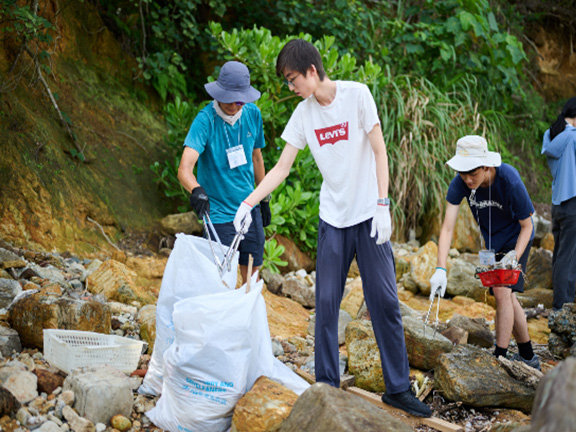
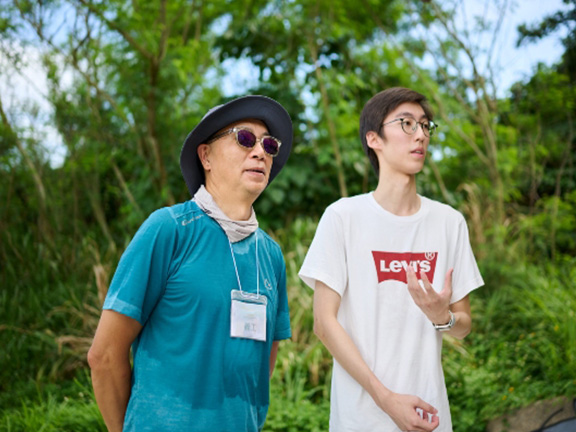
David Wong, a student from The Chinese University of Hong Kong’s computer science and engineering programme, was one of Benny’s apprentices. While the two put the plastic litter into garbage bags, David recalled how he had previously signed up for another beach cleaning that was cancelled due to bad weather. After only half an hour, he was shocked by both the sheer volume and the variety of trash on the beach, including thick long ropes, oversized plastic bottles and instant noodle packets.
Having Benny as a mentor made David’s job easier. From picking up trash and leaving in on the beach to seeking help from professionals to remove animal corpses, Benny has seen and done it all. “These are things you can’t learn from books,” said David.
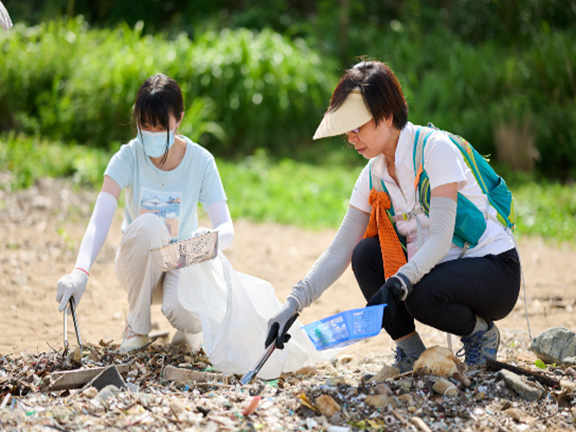
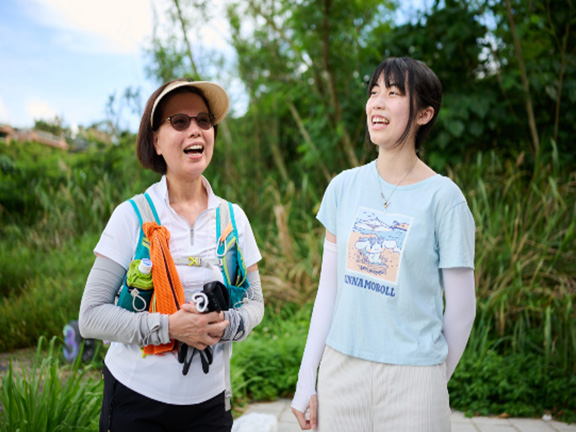
Krystal Lok, a student at Lingnan University, is no stranger to beach cleaning. Having participated in similar activities organised by her university, she explained that clean-ups embody her ideals and aspirations. With a major in sustainable development, there are even more reasons to put what she learns from books into practice.
Krystal even remembered finding different types of plastic waste at the beaches. Plastic bottles dominated a rocky beach last time. At Sheung Sze Wan, it was mainly bottle caps and plastic debris. “I regularly remind my friends and relatives to use fewer plastic bottles because I treasure the environment and our planet,” she said. “They should also bring their own shopping bags. By doing so, I hope to spread the idea of reducing waste at source.”
Venus Lee, who was Krystal’s partner for the day, also expressed her helplessness after joining several beach clean-ups. “There is just an endless amount of trash,” she said. “That’s why we should strive to do our best every day. We can also inspire our friends to reduce waste, recycle paper and tin cans.”
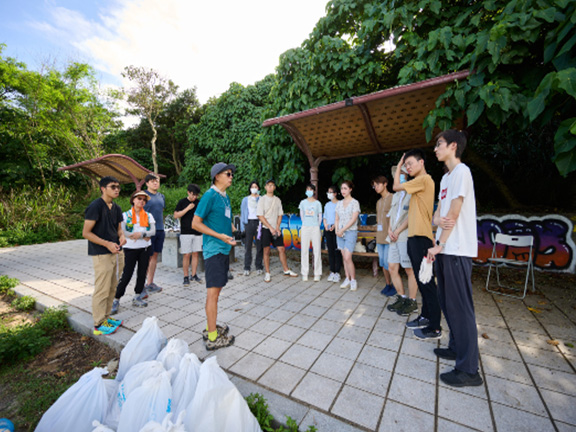
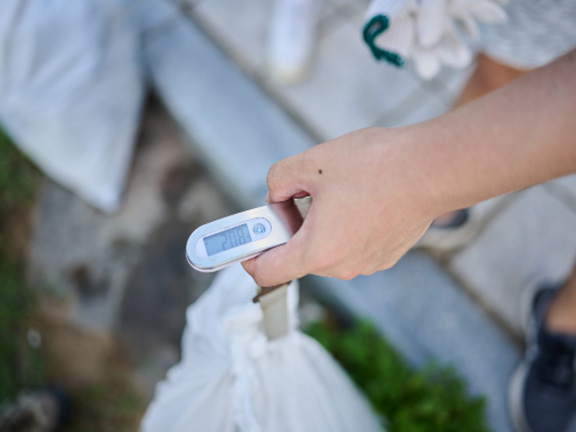
In less than an hour, more than 20 volunteers and students collected 30 kg of trash from Sheung Sze Wan. As a team leader, Benny stressed that their goal is to use action to stop people not to litter. “It’s all about discipline and self-awareness,” he added.
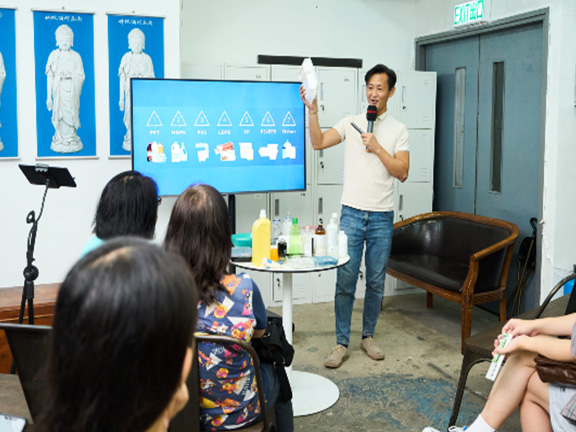
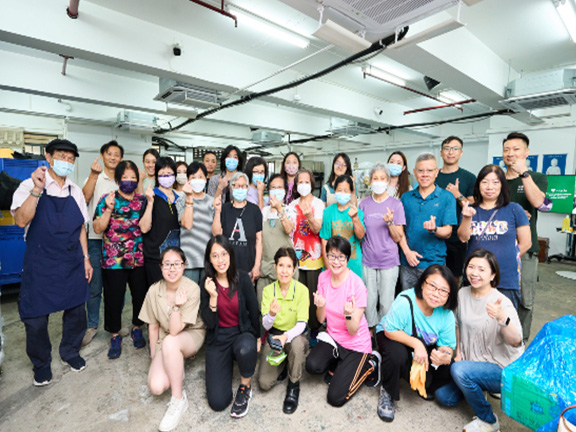
Hong Kong, with a population of over 7 million, sends 15,500 tonnes of waste to landfill every day. It’s time to start acting now If you are shocked by this inconvenient truth. Waste separation and recycling campaign cannot succeed unless everyone contributes.
Link and the Jane Goodall Institute (Hong Kong) hosted a workshop In June where speakers discussed the concept of plastic waste separation and Hong Kong’s recycling industry. The seminar, attended by more than 20 retirees and university students, aimed to inspire people to think about how to bring green concepts into their lives in a new way.
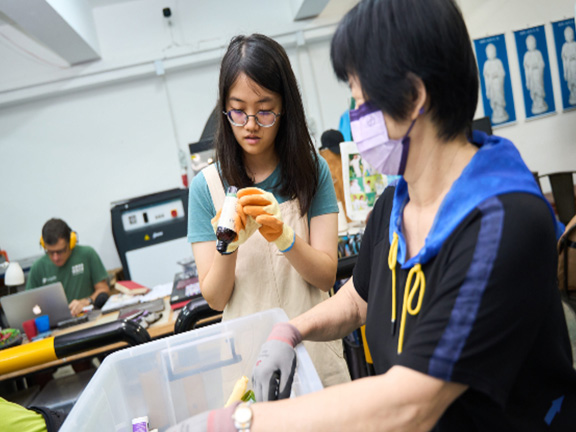
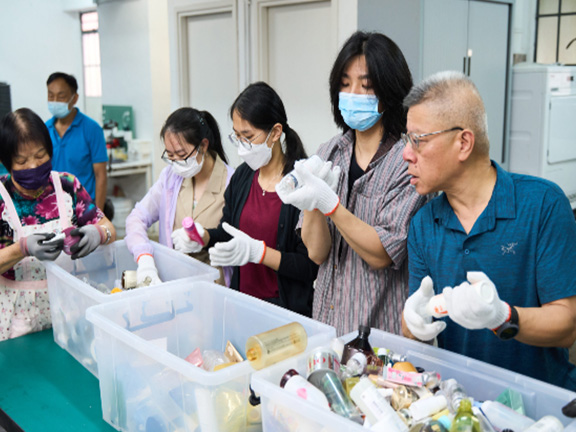
Suen Po-ying, who studies environmental management and technology at The Hong Kong University of Science and Technology, found the workshop related to her major. “It’s just empty talk we learn in class. Having a better understanding of how the recycling actually works is more meaningful,” Suen Po-ying said, adding that she has acquired a lot of practical knowledge and skills from the workshop, including how to sort plastic bottles and remove labels.
Po Ying also gained plenty of good memories while working with elderly people and seeing things from a different perspective. “The activity today made me realise that it doesn’t always have to be young people who teach older people new knowledge. They taught us how to separate and recycle just now.”
Tsang Chi-hin, a student from Lingnan University’s Chinese department, also gained new perspectives from working with the seniors. “They are all very friendly and we can ask them for guidance when we don’t understand something,” Tsang Chi-hin said, adding that he attended the workshop to change his lifestyle to be more environmentally friendly.
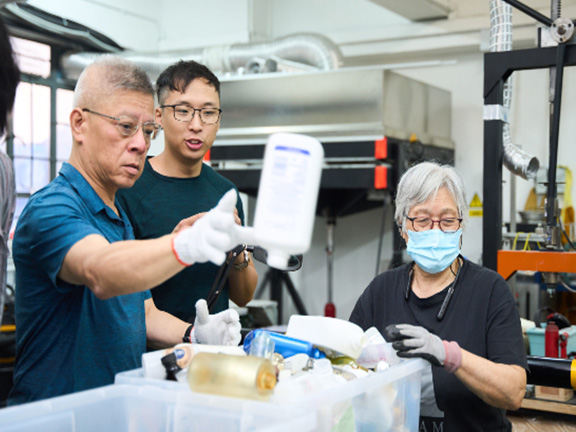
Retirees Antony Hui and Pion Ho committed to putting their learnings about recycling into action. "I want to remind myself to refrain from excessive and unnecessary purchases, and to give back to the community by volunteering with students,” said Pion. Antony said, “I will use fewer plastic bottles and sort waste more meticulously. Regardless your age, you must protect the environment.”